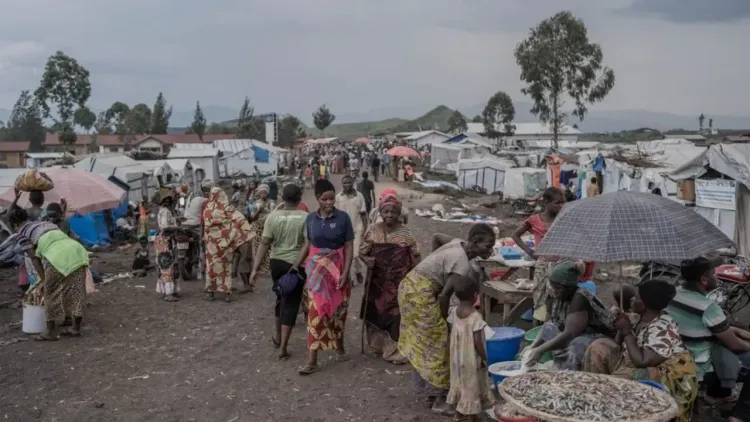Over 67 Million Individuals Facing Food Insecurity in the Horn of Africa Amid Rising Climate and Conflict Challenges: A Report

Synopsis
Key Takeaways
- 67.4 million people in the Horn of Africa are food insecure.
- 38 million of these individuals are in IGAD member states.
- Conflict is the main cause of food insecurity in the region.
- Over 29 million people are displaced due to conflict and climate risks.
- Urgent intervention is required to prevent malnutrition.
Nairobi, Feb 1 (NationPress) Approximately 67.4 million individuals in the Horn of Africa are currently experiencing food insecurity, according to a collaborative report by the Food and Agriculture Organization of the United Nations (FAO) and the Intergovernmental Authority on Development (IGAD), an East African organization.
This figure marks an increase from 64.8 million reported at the end of November 2024, with the rise largely attributed to conflict and climate shocks impacting the region.
Of the 67.4 million affected individuals, 38 million reside in IGAD member nations, which include Djibouti, Ethiopia, Kenya, Somalia, South Sudan, Sudan, and Uganda. The remaining individuals are located in other countries within the Horn of Africa, such as the Central African Republic and the Democratic Republic of the Congo (DRC), as reported by the Xinhua news agency.
According to the institutions, conflict continues to be the primary factor driving the food crisis in East Africa, with approximately 38 million people across the IGAD region facing severe levels of acute food insecurity. They noted that extreme weather patterns and climate shocks have intensified and become more frequent, exacerbating food insecurity.
The two organizations reported that over 29 million individuals in the region have been displaced due to both conflict and climate-related risks, primarily in Sudan and the DRC.
The report highlighted that the displacement is adversely impacting the food security of many host communities by exerting additional pressure on their resources. There is an urgent need for interventions to prevent and address malnutrition and related diseases; if these issues remain unaddressed, high mortality rates are likely to occur.
The United Nations Office for the Coordination of Humanitarian Affairs has indicated that ongoing climate shocks and conflict are escalating poverty levels, acute food insecurity, and malnutrition throughout the Horn of Africa.









